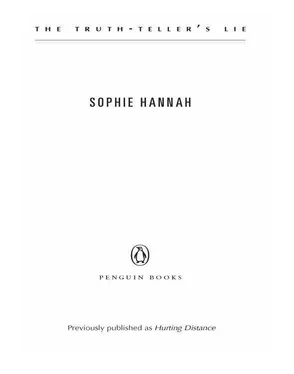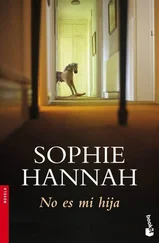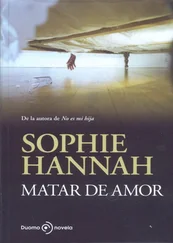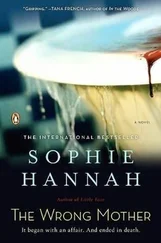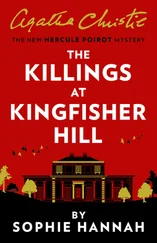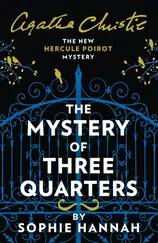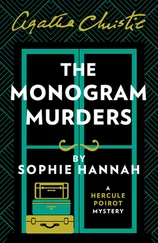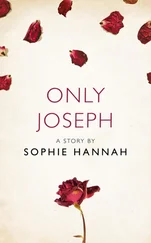I am certain that they are doing nothing. I don’t think they will lift a finger to help you. They believe you’ve left me by choice, that you’ve chosen Juliet over me and you’re too scared to tell me this directly. Only you and I know how ridiculous that idea is.
A Detective Constable Gibbs answers the phone. He tells me that Zailer and Waterhouse are both out. His manner is offhand, verging on rude. Does he so resent speaking to me that he is trying to use as few words as possible in response to my questions? That’s the impression I get. He has probably heard all about me and thinks I’m some kind of bunny-boiler, hounding you when you’d rather be left alone, sending the police to do my dirty work. When I tell him that I want to leave a message, he pretends he has a pen, pretends he is writing down Sean and Tony’s names, but he can’t be. He growls, ‘Got it,’ too quickly. I can tell when someone is really making a note of something—there are long pauses, and sometimes they repeat bits under their breath, or check spellings.
Detective Constable Gibbs does none of these things. He puts the phone down while I am still talking to him.
I walk over to the white-painted iron railings that separate the pub’s terrace from the river. I ought to ring the police station again, demand to speak to the most senior person in the building—a chief constable or chief superintendent—and complain about the way I’ve been treated. I am brilliant at complaining. It is what I was doing the first time you saw me, and it’s why you fell in love with me—you always tell me that. I had no idea you were watching, listening, otherwise I’m sure I would have toned it down a bit. Thank God I didn’t. Beautifully savage: that’s how you describe the way I was that day.
It would never occur to you to protest about anything—on your own behalf, I mean; you would always stick up for me. But that’s why you admire my fighting spirit, my conviction that misery and shoddiness do not have to be part of life. You’re impressed that I have the nerve to aim absurdly high.
I can’t go back into the pub, not yet. I am too churned up. Tears of rage fill my eyes, blurring the cold, slow-moving water in front of me. I hate myself when I cry, really loathe myself. It doesn’t do any good. What’s the point of resolving never to be weak and helpless again if all you can do when your lover vanishes into thin air is stand beside a river and weep? It’s pathetic.
Yvon will tell me again to give the police a chance, but why should I? Why aren’t Detective Sergeant Zailer and Detective Constable Waterhouse here at the Star, asking Sean when he last saw you? Will they bother to go to your house and speak to Juliet? Unaccounted-for married lovers must be bottom of their list of priorities. Especially now, when all over the country, it sometimes seems, networks of maniacs are planning to blow themselves up and take train-loads of innocent men, women and children with them. Dangerous criminals—those are the people the police care about finding.
My heart jolts as an impossible idea begins to take shape in my mind. I try to push it down but it won’t go away; it advances from the shadows slowly, gradually, like a figure emerging from a dark cave. I wipe my eyes. No, I can’t do it. Even to think about it feels like a terrible betrayal. I’m sorry, Robert. I must be going properly mad. Nobody would do that. Besides, it would be a physical impossibility. I wouldn’t be able to utter the words.
What kind of a person does that? Nobody! That’s what Yvon said when I told her about how we met, how you drew yourself to my attention. I told you she’d said it, remember? You smiled and said, ‘Tell her I’m the person who does the things nobody would do.’ I did tell her. She mimed sticking her finger down her throat.
I clutch the railings for support, feeling wrung out, as if this new fear that has suddenly saturated me might dissolve my bones and muscles. ‘I can’t do it, Robert,’ I whisper, knowing it’s pointless. I had this exact same sensation when we first met: an unwavering certainty that everything that was going to happen had been laid down long ago by an authority far more powerful than me, one that owed me nothing, entered into no contract with me, yet compelled me entirely. I couldn’t have tampered with it, however hard I’d tried.
It’s the same this time. The decision has already been made.
Sean smiles at me as I walk back into the pub—a bland, cartoon smile, as if he hasn’t met me before, as if we haven’t just agreed that you are missing, that there is cause for serious concern. Yvon sits at the table furthest from the bar, playing with her mobile phone. She’s got a new game on it that she’s addicted to. It’s clear that, in my absence, she and Sean have not been talking to one another. It makes me angry. Why am I always the one who has to drive everything?
‘We’ve got to go,’ I say to Yvon.
Her name has not always been Yvon. I’ve never told you this. There’s a lot I haven’t told you about her. I stopped mentioning her after it occurred to me that you might be jealous. I am not married, and apart from you Yvon is the most important person in my life. I am closer to her than I am to any of my family. She has lived with me ever since her divorce, which is another thing I haven’t told you about.
She’s tiny and skinny—five feet tall, seven and a half stone—and has long, straight brown hair that reaches her waist. Usually she wears it in a ponytail that she twists round her arm when she’s working, or playing games on her computer. Every few months she chain-smokes Consulate menthol cigarettes for between a week and a fortnight, but then she gives up again. I’m never allowed to mention these lapses from healthy living once they’re over.
She was christened Eleanor—Eleanor Rosamund Newman—but when she was twelve she decided that she wanted to be called Yvon instead. She asked her parents if she could change her name, and the fools agreed. They’re both classicists at Oxford, strict about education but nothing else. They believe it’s important to let children express their personalities, as long as it doesn’t interfere with their getting straight ‘A’s all the way through school.
‘They’re a pair of numbskulls,’ Yvon often says. ‘I was twelve! I thought “Too Shy” by Kajagoogoo was the best song ever written. I wanted to marry Limahl. They should have locked me in a cupboard until I grew out of it.’
When Yvon married Ben Cotchin, she took his surname. Her friends and family, including me, were mystified when she decided to keep it after the divorce. ‘Every time I change my name, I make it a little bit worse,’ she explained. ‘I’m not risking it again. Anyway, I like having a shit, wrongly spelled first name and the surname of a spoiled, lazy alcoholic. It’s a fantastic exercise in humility. Whenever I pick up an envelope addressed to me, or fill in the electoral register form, I remember how stupid I am. It keeps the old ego in check.’
‘Are we going home?’ she asks now.
‘No. To the police station.’
I so badly want to tell her. Yvon is the person whose opinions I use to test my own. Often I don’t know what I think about something until I’ve heard what she thinks. But I can’t risk it this time. Besides, there’s no point. I know all the reasons why it’s wrong and bad and crazy, and I’m going to do it anyway.
‘The police station?’ Yvon begins to protest. ‘But—’
‘I know, I should give them a chance,’ I say bitterly. ‘But this isn’t about that. This is something different.’ I feel stunned by my own outrageous nerve, but calmer, also, now that I have decided on a course of action. No one can accuse me of being a coward if I do this.
Читать дальше
